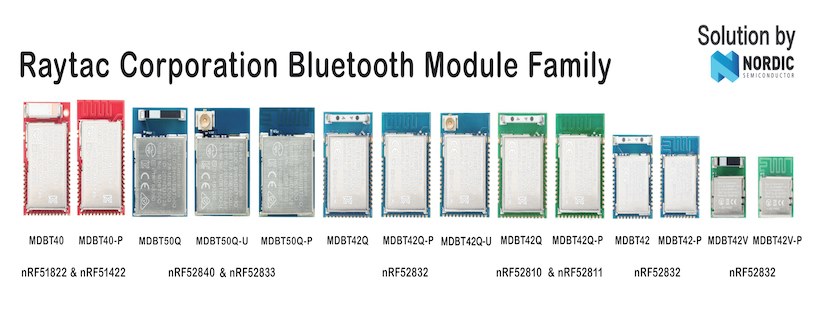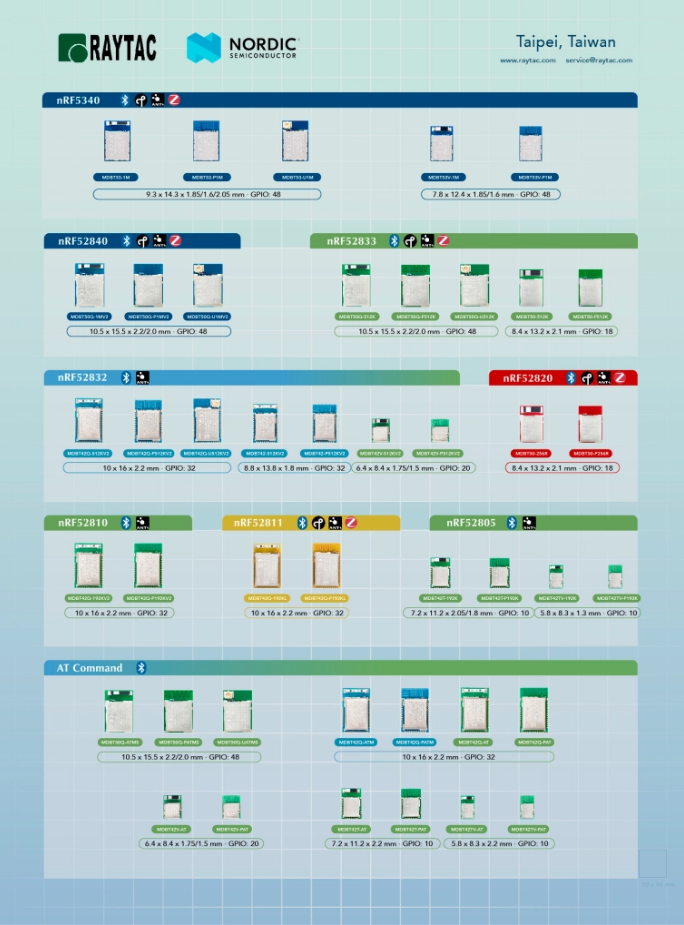Certification and compliance:
By obtaining wireless (Bluetooth) certification, manufacturers can demonstrate that their products comply with the required technical reliability. In another words, these certifications are like products’ passes, allow them legally entering the market and be able to import or export globally. Modular approval and Non-modular approval are two different approaches to the certification and regulatory processes for wireless communication devices.
Modular approval is a process in which a wireless device is certified as a modular component, such as a Bluetooth module, that can be integrated into multiple host devices without additional testing for each host device. Once certified, the module can be used in various host devices without undergo the same level of testing.
Non-modular approval is also known as end-product approval, is the traditional certification process for wireless devices, where the entire device needs to be tested and certified for compliance with wireless (Bluetooth) standards and regulations.

Countries follow and under modular approval such as FCC (USA), IC (Canada), Telec (Japan), KC (South Korea), NCC(Taiwan), SRRC(China)…etc.Meanwhile, countries are under non-modular approval, we have CE RED (Europe), RCM (Australia and New Zealand)…etc.
The elaboration and the easy steps on how the process we go through as you choose Raytac, detail for each as following:
Modular Approval:

FCC (USA)
FCC ID Search | Federal Communications Commission
1. Part 15C –> Simply use our module FCC ID on product label
2. Part 15B (EMC) –> request lab to test on EMC, SDoc*
*Definition: SDoc(Supplier’s Declaration of conformity)
One way to show that a product, process or service to comply with a standard or technical regulation, in which a supplier provides written assurance of conformity to the specified requirements.

IC (Canada)
IndustryCanda Wireless ID Database (industrycanada.co)
1.Similar to FCC –> Simply use our module IC ID on product label.
2.–> request lab to test finished good on EMC (IC ES003).
Recommend combining test with FCC Part 15B

Telec (MIC)(Japan)
MIC ICT Policy (soumu.go.jp)
1.–> Simply use our module Telec ID on product label
2.Different from the USA and Canada –> EMC is optional in Japan, upon on end customer’s request.

KC (South Korea)
South Korea – Labeling/Marking Requirements (trade.gov)
1. Wireless test can be continued to use module report, new test is not required.
2. EMC KN301489(same rule as CE EN301489)
–> to be tested based on final goods under EMC test policy. Same rules as FCC and IC.
Recommend combining test with FCC Part 15B.
3. If product obtain additional cable IO port, test on KN3235 is required.
4. To be KC certified, the new test is required, certification no. cannot be continued to use from other policy. And the test must be done locally.

NCC (Taiwan)
NATIONAL COMMUNICATIONS COMMISSION (ncc.gov.tw)
1. Products is compliant with platform policyà lab submit photo and add product under Raytac NCC no.
2. Products is not compliant with platform policy à product must be tested as final goods at the lab to be certified.
*Definition: platform policy: product itself has it’s own function before Bluetooth was installed. For example, a Bluetooth installed pen has a new function; it vibrates when the switch is on. In this scenario, pen originally has it’s own function, and now the addition function; vibration has been added to this device. We say this product is compliant with platform policy.

SRRC (China)
State Radio Regulation of China (srrc.org.cn)
1. –>Simply use our module SRRC ID on product label.
2. Products doesn’t under the category of home electronics / office supplies, SRRC test must be implemented.
Non-Modular Approval:

CE RED (Europe)
CE Marking (trade.gov)
1. Wireless test: EN300328
–> Conducted test could continue to use Raytac ‘s CE report.
–> Radiated test is required to be tested based on final goods under wireless regulation.
2. EN301489 (EMC) –> Same rules as FCC and IC. Recommend combining test with FCC Part 15B
3. Safety test: EN60950 (EN62368)–> safety test is required to be tested based on final goods under regulation.

RCM (Australia and New Zealand)
The Regulatory Compliance Mark (RCM) (General) – EESS
1. Products is CE certified –>lab can copy CE report to apply RCM
2. Products is not CE certified –> go through the same test as CE regulations.

Overall, it’s important to note that the certification process and requirements may vary across different regions. Manufacturers should consult the relevant certification authorities to determine the specific requirements for their wireless devices.
Raytac already took a step ahead gone through complex procedures of obtaining certifications, and we also have strong IT team to support for best solutions.Choosing Raytac would allow you to work more efficient and it will be your key in success for all the projects.

Edited by Sales Manager: Mandy Chao
